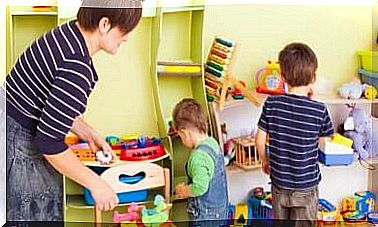Teaching Children To Value Money: Some Tips

The sooner you start teaching kids to value money, the more they’ll be prepared for adulthood.
When a child is young, money is not yet an essential part of his life. However, it is the best time to teach her how to use it so that she has a healthy and balanced relationship with this resource.
Importance of teaching children to value money
When you talk about teaching kids to value their money, it’s not just about opening an account and teaching them to save. It goes far beyond that.
The aim is to show them that they should value their savings and then enjoy the privileges. This results in less selfish, petty, wasteful, and self-serving children in such a materialistic age.
Furthermore, it is one of the fundamental pillars in a child’s education, as it helps to raise awareness about the importance of savings for the household economy.
In this way, they assimilate how much it costs to buy the things they enjoy every day. Therefore, it is not always possible to have everything you want.
Educating them about the value of wealth is a great benefit. A child who knows how to value money will find it easier to deal with his limitations without feeling frustrated.
6 Ways to Teach Your Child to Value Money
Teach your child what money means and its true value. When you take him shopping, show him the prices. Although it is still small, as it grows, it will be able to understand the difference between the expensive and the cheap.
Also, show him the importance of budgeting and its benefits. Then he will understand that he shouldn’t spend more than he has.
Explain that there are people who have more money and can buy things that others cannot. However, even if they have a lot of money, there are expenses that should be limited.
Furthermore, children should know that their happiness does not depend on wealth alone. The suggestions below will help you to instill these ideas with ease.

start with your example
Remember that children are like sponges that absorb what they see. They are always aware of their behavior.
So if they see that you spend without limits and buy things you don’t use, they will imitate you. In other words, the best way to teach children to value money is, without a doubt, through their actions.
assign tasks at home
Adults work to earn money and children should know this. They need to understand that they must earn what they have. A simple way to teach them is to assign easy tasks like sweeping leaves in the garden.
When the child collaborates in the activity you have assigned, reward them. You can schedule tasks and set a payment for some of them. In this way, she will understand that to get a reward she has to make an effort and wait. This will help her to have self-control and tolerance.
teach how to save
Once your child has his own money, it’s time to teach him the importance of not spending it all. One way to help is to buy a piggy bank to keep a portion of every amount he receives.
On the other hand, if the child is already 10 years old or older, you can open an account for their savings. Of course, you will be the only person to manage it, even if the funds are from your little one.
Encourage to set realistic goals
To motivate your child to save money, encourage him to set a goal of what he will buy with what he accumulates. In addition, you can propose to take a course or a trip with your own money. This will excite him and thus he will understand the value of savings.
However, you must not impose anything. Instead, let him choose according to his preferences. You should only offer suggestions and support your decision.
Children are very happy that they have earned some money and that they have achieved a goal. This will motivate them to save at other times.

have a budget
Tell your child the benefits of having a budget and make your money match your expenses. Making a plan for what you will receive, spend and save in a month will help you be disciplined in using the money.
Help find offers
By age 10, your child is able to understand numbers and some calculations. When shopping, ask him to give you his opinion on the various product offerings. So he will assess the suitability of each of them and be happy to give his opinion.
In conclusion, keep in mind that in order to teach children to value money, you must be the first person to follow the right economic path. That way, they will appreciate what they have and will understand the value of striving to achieve it.








